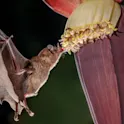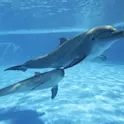
Featured news
06 Oct 2021
Frontiers and Leuphana University of Lüneburg form open access publishing agreement
We are delighted to announce that Leuphana University of Lüneburg (Leuphana Universität Lüneburg) has established an institutional membership agreement for open access publishing with Frontiers. The University Library of Leuphana University of Lüneburg supports its researchers in making their research more widely available. As part of this support, Leuphana University of Lüneburg has entered an institutional agreement with Frontiers. Under the terms of this agreement, eligible authors from Leuphana University of Lüneburg may publish in any Frontiers journal at no cost to them and with a simplified process. Eligible authors will benefit from a streamlined invoicing process, managed directly between Frontiers and the Open Access team at the Library of the Leuphana University of Lüneburg, relieving authors of the responsibility of payment. Furthermore, Leuphana University of Lüneburg and its Library will benefit from a discount on Article Processing Charges (APCs) for articles covered by this agreement. This agreement will further encourage Leuphana University of Lüneburg authors to publish open access, increasing uptake of open access to the results of mostly publicly funded research, to the benefit of the scholarly community and the public at large, while reducing costs. Information for authors: To submit your article under this institutional agreement, please […]













